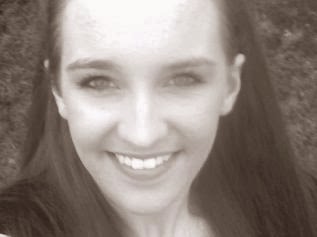Friday, February 28, 2014
Christina George's #WriteTip on How to Find a Publisher @PublicistGal #Romance #AmReading
Wednesday, February 26, 2014
Fool for Love by Merry Farmer @MerryFarmer20
Chapter Four
The Majestic rose up out of the water in its Liverpool dock with all the glory of its name. Amelia held one hand to her hat and stared at its iron sides, its two dun-colored funnels and three tall masts. The ship was a strange thing to her, a mixture of old and new, progress with hints of the past. It had sails that could be unfurled in a pinch, but with its powerful new engines, the ship could cross the ocean in a week.
Seven days to a new world. It was an exact description of everything her life had become. It was every bit as daunting.
“What am I doing?” Amelia whispered, staring at the hopeful monstrosity in front of her. It was one thing to accept an offer for a new life. It was another thing entirely to go through with it.
She turned away from the ship, swallowing the nausea that had plagued her since she’d left her mother’s house. This time it wasn’t morning sickness. That was long past. At the moment, the baby was the least of her worries. Her stomach rolled over the idea that she was about to board a ship heading for a new life at the mercy of a stranger, a man, no less. The last time she had trusted her life and her future to a man had been a disaster.
She paced, purse clutched to her chest, scanning the busy dock in search of her American savior. Men, women, and children crowded the gangplanks, eager to start their journeys, excited and hopeful. Many of the third-class passengers carried bundles that indicated theirs was a one-way trip as much as hers was. Eric had left her there to go buy her ticket, but there was nothing stopping him from running off and leaving her stranded. Like her father. Like Nick. She was a fool to agree to this. She pivoted and marched away from the ship.
No, she stopped herself after a handful of steps, this was the best decision she could have made. She may have felt small and lonely standing by herself, waiting, heart and stomach fluttering, but she was as much a part of the intrepid adventurers seeking a new life in America as any of her fellow passengers. This was right.
Maybe.
“Well, we got a minor problem on our hands.”
The twang of Eric’s accent shocked Amelia from her worries. She spun to face him as he approached her with wide strides, scratching his head and looking as guilty as a schoolboy.
“A problem?” she asked, voice fluttering.
“Yeah. I went to buy you a ticket, but they’re plumb sold out.”
Amelia’s chest tightened and her tender stomach lurched. “Oh. Oh dear. Well I suppose….”
She lowered her eyes, heart aquiver. As quickly as it started, her chance for a new life was over. All that worrying for nothing.
She squared her shoulders to face her fate. “I … I thank you for your efforts on my behalf regardless, Mr. Quinlan.”
Eric’s brow crinkled into a curious frown. “Regardless?”
“I suppose I could find work here in Liverpool,” she explained. “Surely there must be a shop somewhere that would look the other way from….” She lowered her hand to the mound of her stomach.
Eric’s lips twitched. The morning sunlight caught in his eyes. “I didn’t want to have to put you in third-class, so I told them you were my wife.”
Amelia blinked. “You what?”
“I told them we’re newlyweds. I reserved my stateroom in first class last year when I came over. Good thing I paid for it then too, ‘cuz after this fiasco of a trip I’ll never ride first-class again. Anyhow, when they said they didn’t have any more rooms, I told them you were my wife and that we would be staying in the same stateroom. They sold me a ticket for that.” He handed her a fresh, clean ticket with her name written as ‘Mrs. Amelia Quinlan’. “Sorry.”
Amelia held perfectly still on the outside, but on the inside her heart pounded and her stomach rolled with guilt for questioning him. He wasn’t abandoning her. He had gone out of his way to help her. Her heart squeezed as it never had before. She took the ticket from him with a trembling hand, hardly noticing when her fingers brushed his. She was rescued after all.
“Thank you, Mr. Quinlan. You have no idea how much this kindness means to me.” She had to concentrate on breathing, standing straight, and looking up into his handsome eyes with a smile to keep her tears at bay.
“You don’t mind sharing then?” he asked her.
Buy Now @ Amazon
Genre – Western Historical Romance
Rating – R
More details about the author and the book
Connect with Merry Farmer on Facebook & Twitter
Website http://merryfarmer.net
5 Rules for New #Authors by Kevin Sterling @KSterlingWriter #WriteTip #AmWriting
- Schedule a regular time to write. Make it every day, week or weekend, but stick to it. Tell your family and friends that this time is important to you, and they need to respect it.
- Use an outline. If you want to “wing it” with later books, that’s fine. But once you realize the value of an outline, you probably won’t. The key is to ensure that your outline and manuscript are in alignment at all times. Modify the outline every day if necessary to correspond with any changes you’ve made to the book. Allowing the two to get out of sync will be a nightmare. Believe me. I’ve been there.
- Understand POV. If you’re writing in third person, read everything you can about point of view (POV), and get the rules down before you start. For example, every chapter or section should be written from a single POV, and you cannot describe any other character’s thoughts or feelings. You can only write what your POV character’s observations or beliefs about the other person’s feelings may be. Nothing more.
- Pick a tense and stick with it. Most third-person narrative is written in past tense, but you’ll see first-person in present or past. I’ve read manuscripts as a favor for people, and it amazes me how often the two are mixed together. The only exception, of course, is dialogue, which is always in present tense because you’re regurgitating what was said at the time.
- Use an editor. No one – not even the best-selling writers in the world – can produce a viable manuscript without an editor. Ideally, this is an industry professional who not only points out story plot failures, inaccuracies and awful passages that simply must go, but who also identifies typos, grammatical mistakes, repetitive words, passive versus active descriptions, etc. Not everyone can afford a professional at first, so at least find someone who is very proficient in English like another budding writer, but they must be brutally honest with you. Then, trade favors or see if you can get by with taking them out for a nice dinner. You do NOT want to self-publish or submit a book that is littered with mistakes. It’s the surest way to kill a writing career before it even starts.
The Jack Lazar Series has it all from mystery and suspense to action, humor and romance
An Egyptian Girl with Blue Eyes? Just Stunning.
A Race Against Time
Saturday, February 22, 2014
#WriteTip from Sandy Nathan on Making Characters Believable @SandyONathan #SciFi #MustRead
Friday, February 21, 2014
RJ Blain's #WriteTip for Forging Connections Between Readers & Fans @rj_blain #AmWriting #Fantasy
Floats The Dark Shadow by Yves Fey @YvesFey #excerpt #historical #mystery
Dark gleaming eyes watched her.
Black lips parted to show fearsome fangs.
Mesmerized, Theodora stared at the snarling leopard crouched and ready to spring.
Laughter erupted nearby. Paused on the threshold, Theo fought the answering smile that quivered at the edge of her lips. Instead, she pressed one hand to her heart, the other to her brow, and faux swooned against the doorjamb. “Save me. I will be devoured.”
“Save you from such a unique death?” Paul exclaimed. “Never!”
“Indeed, what poet would spare you such a devastatingly delicious experience?” Casimir inquired.
“Delicious for the leopard,” Theo scoffed, stepping into Deyrolle’s taxidermist shop. Underneath bowls of potpourri exuding rosemary, lemon, and lavender, she breathed a musty aroma of fur and feathers, a hint of chemicals. Kneeling in front of the leopard, she felt its sharp fangs and stroked its rough, spotted pelt. She wished she could feel the muscle ripple beneath the hide. How wonderful that would be—to stroke a live leopard.
Despite all the praises Theo had heard, this was her first visit to Deyrolle’s. She loved living animals and had had little desire to visit a shop full of dead ones, however unusual. Now that she was here, to her surprise, she felt caught in its spell. There was a strange blending of cruelty and in love the preservation of these creatures. Violation and honor.
Still kneeling, she looked about her. Hovering above the crouching leopard, a crane soared on outstretched wings. A passageway opened to either side. In one, a baby elephant lifted its trunk as if sniffing the air. In the other, a huge king cobra rose, spreading his hood. Beside the winding staircase stood a mannequin in a dapper suit and striped cravat, topped with the head of a gazelle. Deyrolle’s managed to be at once charming, sad, and unnerving.
Theo stood and went to join the Revenants who had responded to Averill’s request to meet here. Casimir, Paul, Jules were gathered around a glass case near the elephant. They were dressed in descending degrees of elegance, aristocratic, professorial, and shabby country church mouse. Also present were les trois Traits—the three Hyphens, as Paul had dubbed them—three slim, dark-haired poets named Jean-Jacques, Pierre-Henri, and Louis-LeRoi, professor, student, and fledgling lawyer …
There was a bucket with three bottles of iced champagne on the floor beside them, and a fancy basket held crystal flutes. An attendant waiting behind the cash register had a towel draped over his arm, as if champagne were de rigueur on such occasions. Theo looked around for Averill and saw him descend the curving staircase that led to the next floor. Her heart trip-stepped at the sight of him. At first he seemed freshly scrubbed, almost boyish. His hair was smoothly pomaded, his linen gleaming white, and his suit neatly pressed. When he came close to greet her, she saw dark circles under his eyes. Too much studying—or too much absinthe?

Once Humans by Massimo Marino @Massim0Marin0 #scifi #excerpt
We had the perfect life in the French-Swiss countryside until that mysterious windstorm in February. No one realized anything unusual has happened, but the next morning, while driving Annah, my daughter, to school, I discovered that vehicles littered the highway, with their dead occupants still inside.
Returning home, no one answered the phone at any of the emergency departments nor could I or my wife, Mary, reach our relatives and friends. Checking on the neighbors, I found them dead.
We soon realized we might be the only survivors of a global catastrophe. We stock up on emergency supplies, turn the house into a stronghold, and collected food and medicines. The Internet still worked so I launched a large, online campaign to find other survivors with the hope of learning more about what we were facing. While waiting for any response at all, I managed to befriend some neighborhood dogs and we armed ourselves with survival gear.
At first, it felt weird and disturbing to go into stores and take things without paying but, of course, there was no one to pay. The whole world had become a ghost town.

Thursday, February 20, 2014
Goodnight, Gustav Klein by Elliot C. Mason @ArthurRay44 #Romance #Travel
He was standing atop a small mountain near Aviemore, in the Cairngorms. The air was not warm, but it never is. And the fatigued rambler looked down, back to his trail of hope, drenched in the blood of reality, at the slopes and crevasses of his journey.
To wind back through the broken ruins of history, the scratched dance floor: the ballet pumps of time stretch outward, arms fixed parallel with the ground, holding a tendu: he remembers a woman behind a window, sunlight glaring off the glass, turning her eyes into red dots and her cheeks as pale as the clouds. The left leg is raised, holding a firm countenance, leaning forwards into an arabesque: he remembers the sound of the fireworks, the celebrations, the cheering euphoria which brought him into the current year, and forgets why. The slender body of memory gracefully peeling away from its core, balancing a perfect adage: he remembers a round of applause, remembers the miserable beat of the train rolling through sodden tracks. And the dancing clock stretches farther, reaching down to the distant floor, allongé, allongé: he remembers grey clouds; remembers the sun endeavouring to break through, or hide away; remembers not being able to tell which.
The strings of space grow, forceful plucking and an ominous ring, the hands of the conductor ravaging the air; the left leg beating in unison, the grand thump of a balançoire: he remembers a beautiful woman in a splendid city, and enjoying it for a while, before the Christmas lights were put up. Turning, tightening, the dancer of memory, rolling in, the plié lifting with heavy breath, and turn, turn, a pirouette into the past: he remembers tears and arguments and the stains of red wine. Bending at the knee, the ballerina who whisks the memories into a flamboyant concerto for the pensive thinker, the sweat of the conductor drowning the orchestra, the deafening blow of horns for the final soubresaut: he remembers saying goodnight to the journey that tantalisingly slipped through his heart like a fresh blade, and saying hello to the reflection of Mr Klein’s face, the single man who tried to escape, through the window of a train.
Time leaps. It hauls the body through the cesspit of regret. It silences the past and darkens the future. It guides with a rough hand, leading the memory to where it all began; the descent to the top of a mountain. The misty confusion of the mind is cleared, and all that is left are the dim, yellow lights of a small budget hotel in Munich switching off, the radiators crackling as they cool, the ‘For Sale’ sign twitching in the wind, the discarded rubbish blowing through the car park as the last car leaves. And the driver winds down the window, leaning out into the mild night of Bavaria, and his lethargy conquers each speck of his existence. He stares blankly at the building, the empty rooms, the moribund memories, and then he drives on.
Time patters through the gloom of the memory in bourrée, and Gustav Klein merely thinks, hauling thoughts back to the foreshadowing bitterness of autumn.


















